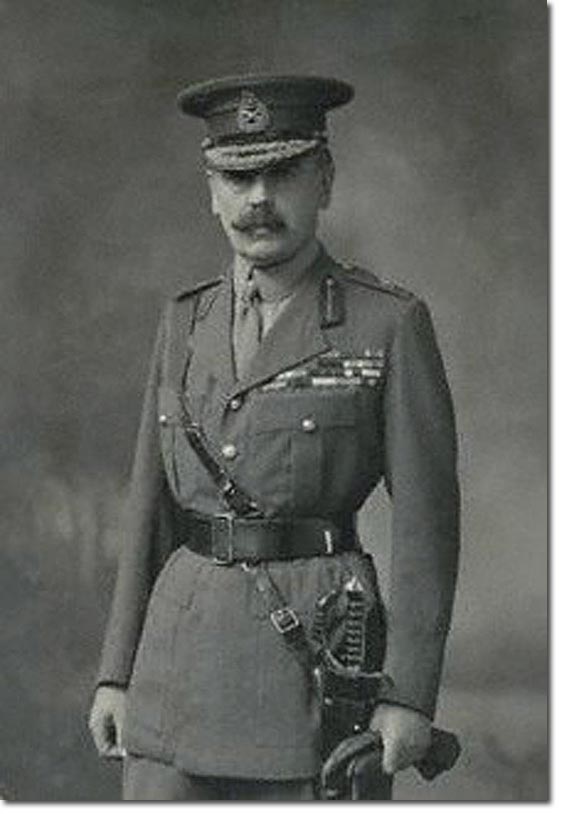|
|

 |
|
Francis Lloyd was born on 12 Aug 1853 the eldest son of Colonel Richard Lloyd, Grenadier Guards of Aston Hall, Oswestry, Shropshire, and his wife Lady Frances Hay, daughter of the 11th Earl of Kinnoul. He was sent to Harrow School, but left after three years.
Lloyd was commissioned as a sub-lieutenant into the 33rd Regiment in 1874. He transferred to his father's regiment, the Grenadier Guards, later that year. Two years later he was promoted to full lieutenant. He obtained his captaincy in 1885 and in the same year took part in the Suakin Expedition as signalling officer to the Guards Brigade. He was mentioned in dispatches for his service at the Battle of Hasheen. He was appointed regimental adjutant in 1889. In 1892 he was promoted to major. He became Commandant of the School of Instruction for Militia and Volunteers in 1894 and Commander of the Guards Depot in 1896. In 1898 he was promoted to the rank of lieutenant-colonel. He took part in the Nile Expedition and fought at the Battle of Khartoum in 1898, again being mentioned in dispatches and receiving the DSO. He was Commanding Officer of 2nd Battalion Grenadier Guards throughout the Second Boer War and was severely wounded at Biddulphsberg in Orange River Colony. He was made a CB in April 1901. He was promoted to the rank of brevet colonel in 1902 and was Commanding Officer of 1st Battalion of his regiment from 1903 to 1904. In 1904 he became Commander of 1st (Guards) Brigade at Aldershot with the rank of Brigadier-General. He was made General Officer Commanding the Welsh Division, Territorial Force in 1909 and appointed a Commander of the Victorian Order. On the occasion of the coronation of George V in 1911 he was made a KCB. In 1913, at the age of 60, his command of the Welsh Division expired. He was promoted to Major-General commanding the Brigade of Guards and GOC London District. During World War I, he was responsible for the defence of London, particularly from attack by Zeppelins, and was given delegated powers over trains and hospitals. On 2 Feb 1915 he was appointed to the largely honorary position of Colonel of the Royal Welsh Fusiliers. In 1917 he was requested to continue in command of London District, and was promoted to Lieutenant-General. In September 1918 he was appointed Grand Cross of the Victorian Order. The Ponsonby's regimental history of the Grenadiers in WW1 says this of him: 'On September 11 [1918] Major-General Fielding left to take command of the London District on the retirement of Lieut.-General Sir Francis Lloyd, who had held that command with conspicuous success during the war. For four years Sir Francis Lloyd had occupied one of the most responsible and difficult positions in the Army, and had dealt, especially in the initial stages of the war, with innumerable problems requiring consummate skill, judgement and tact.' He died on 26 Feb 1926 and was survived by his wife Mary nee Gunnis of Leckie, Stirlingshire. The couple had no children. His funeral service was held at the Guards Chapel, Wellington Barracks on 4 March and he was buried at Aston Hall on the following day. |
Regimental details | Commanding Officers
Armed Forces | Art and Culture | Articles | Biographies | Colonies | Discussion | Glossary | Home | Library | Links | Map Room | Sources and Media | Science and Technology | Search | Student Zone | Timelines | TV & Film | Wargames